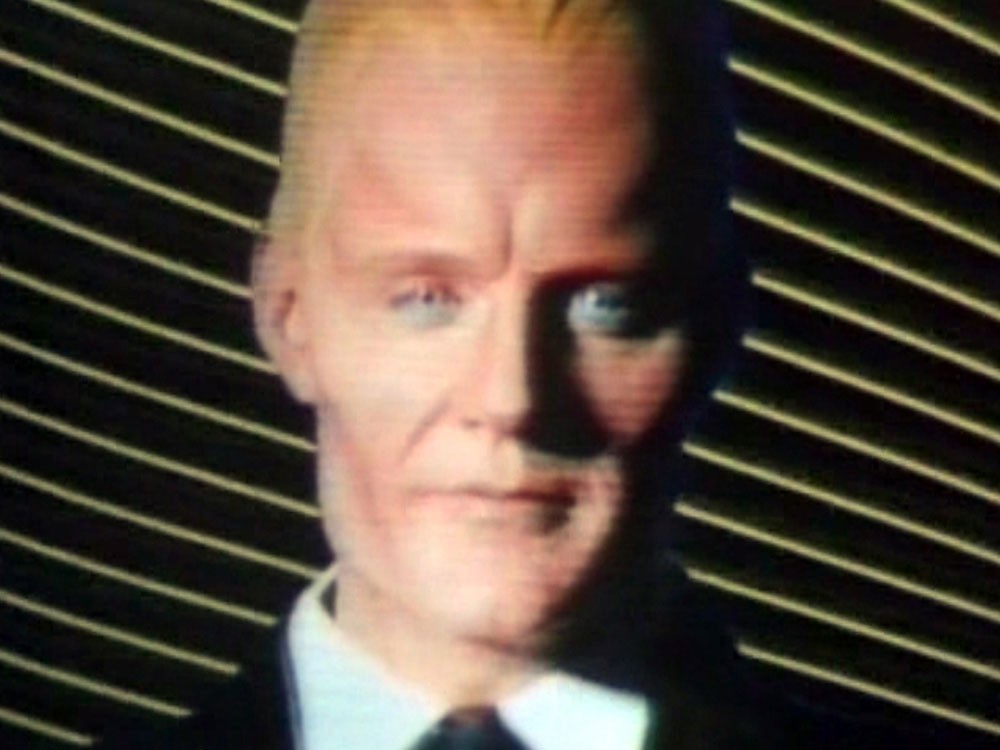“Cheesy.” “Blade Runner-esque.” “Very 1980s.” All these words describe Max Headroom. But “subversive” is probably the best way to describe the short-lived TV series from the ’80s, which was recently released on DVD. “Prescient” also works.
When the show aired more than 20 years ago, it was set “20 minutes into the future.” And it does feel futuristic. Max’s world has TVs set up everywhere, including on the dystopic streets where roving gangs collect homeless people to sell to the “body banks.” When the show premiered in 1987, 24-hour news, RSS feeds and even the World Wide Web were either not invented or completely unfamiliar to TV audiences.
But it’s the show’s main theme that really got to undermining what the “Me” Decade was built upon. This is a world ruled by corporations. Media conglomerates care more about ratings and advertising profits than truth. Their executives sit in poorly lit war rooms, where they hatch one unethical moneymaking plot after another. Manufacturing terrorist attacks and attempting to kill their own journalists are not beneath them.
One of the reporters working for Network 23 — and doing everything he can to derail its sinister executives — is Edison Carter, an investigative journalist whose camera feeds live reports straight to this media-saturated society.
As the show’s main star, Carter sees the most action show after show. But it’s his digital id and super-ego — Max Headroom — that gives the show its heart and critical nature.
During the show’s first episode, Carter is thrown from his motorcycle, an incident that spawns Headroom. He’s a quick-witted and square-jawed computer program (looking very New Wave) who exists only on TV screens and computer monitors.
Annabel Jankel, who helped create the character, said Headroom was “pure, amped-up, swaggering arrogance.” As a fake pundit delivering acid-tongue-in-cheek opinions, Headroom is the proto-Colbert. When he unexpectedly pops up, he criticizes without thinking — a digitized Greek chorus of one.
Which could explain why the show ran for only 13 episodes. Max was just too much.
“Have you any idea how successful censorship is on TV?” he asks in an early episode. “Don’t know the answer? Hmm. Successful, isn’t it?”





















